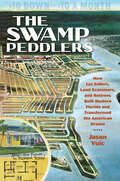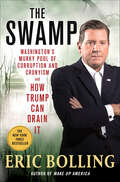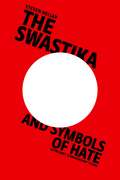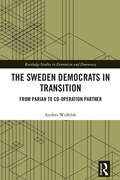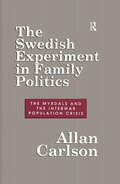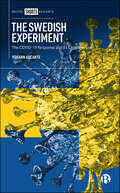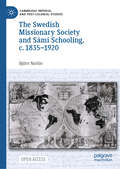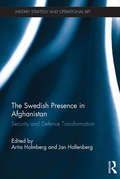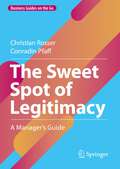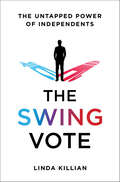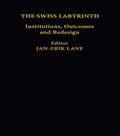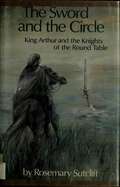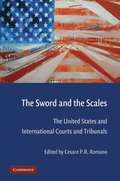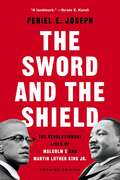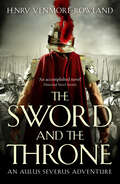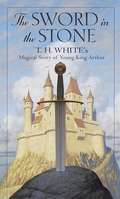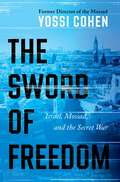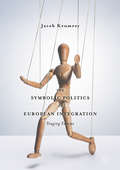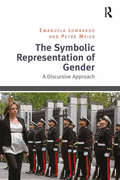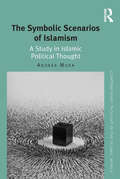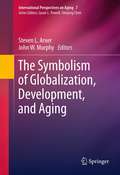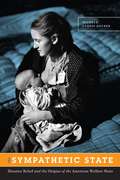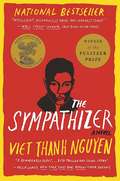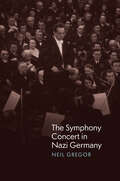- Table View
- List View
The Swamp Peddlers: How Lot Sellers, Land Scammers, and Retirees Built Modern Florida and Transformed the American Dream
by Jason VuicFlorida has long been a beacon for retirees, but for many, the American dream of owning a home there was a fantasy. That changed in the 1950s, when the so-called "installment land sales industry" hawked billions of dollars of Florida residential property, sight unseen, to retiring northerners. For only $10 down and $10 a month, working-class pensioners could buy a piece of the Florida dream: a graded home site that would be waiting for them in a planned community when they were ready to build. The result was Cape Coral, Port St. Lucie, Deltona, Port Charlotte, Palm Coast, and Spring Hill, among many others—sprawling communities with no downtowns, little industry, and millions of residential lots. In The Swamp Peddlers, Jason Vuic tells the raucous tale of the sale of residential lots in postwar Florida. Initially selling cheap homes to retirees with disposable income, by the mid-1950s developers realized that they could make more money selling parcels of land on installment to their customers. These "swamp peddlers" completely transformed the landscape and demographics of Florida, devastating the state environmentally by felling forests, draining wetlands, digging canals, and chopping up at least one million acres into grid-like subdivisions crisscrossed by thousands of miles of roads. Generations of northerners moved to Florida cheaply, but at a huge price: high-pressure sales tactics begat fraud; poor urban planning begat sprawl; poorly-regulated development begat environmental destruction, culminating in the perfect storm of the 21st-century subprime mortgage crisis.
The Swamp: Washington's Murky Pool of Corruption and Cronyism and How Trump Can Drain It
by Eric BollingHow Donald Trump can clear up political misconduct and corruption from the New York Times–bestselling author of Wake Up America.When Washington D.C. was first built, it was on top of a swamp that had to be drained. Donald Trump says it’s time to drain it again.In The Swamp, bestselling author and Fox News Channel host Eric Bolling presents an infuriating, amusing, revealing, and outrageous history of American politics, past and present, Republican and Democrat. From national political scandals to tempests in a teapot that blew up; bribery, blackmail, bullying, and backroom deals that contradicted public policies; cronyism that cost taxpayers hundreds upon hundreds of millions of dollars; and personal conduct that can only be described as regrettable, The Swamp is a journey downriver through the bayous and marshes of Capitol Hill and Foggy Bottom.The presidential election of 2016 was ugly, but it exposed a political, media, industry, and elite establishment that desperately wanted to elect a politician who received millions of dollars from terror-funding states over a businessman willing to tell the corrupt or incompetent, “You’re fired.”The book concludes with a series of recommendations for President Trump: practical, hard-headed, and concise ways to drain the swamp and force Washington to be more transparent, more accountable, and more effective in how it serves those who have elected its politicians and pay the bills for their decisions.Last year President Trump declared Wake Up America to be a “huge” book; Eric Bolling’s second book is sure to build on that success. Entertaining and timely, The Swamp is the perfect book for today’s political climate.
The Swastika and Symbols of Hate: Extremist Iconography Today
by Steven Heller“Force[s] even the most sophisticated to rethink and rework their ideas of how images work in the world.” —School Library Journal This is a classic story, masterfully told, in a new, revised and expanded edition about how one graphic symbol can endure and influence life—for good and evil—for generations and never, even today, be redeemed. A nuanced examination of the most powerful symbol ever created, The Swastika and Symbols of Hate explores the rise and fall of the symbol, its mysteries, co-option, and misunderstandings. Readers will be fascinated by the twists and turns of the swastika’s fortunes, from its pre-Nazi spiritual-religious and benign commercial uses, to the Nazi appropriation and criminalization of the form, to its contemporary applications as both a racist, hate-filled logo and ignorantly hip identity. Once the mark of good fortune, during the twentieth century it was hijacked and perverted, twisted into the graphic embodiment of intolerance. If you want to know what the logo for hate looks like, go no further. The Nazi swastika is a visual obscenity and provokes deep emotions on all sides. The Nazis weaponized this design, first as a party emblem, then as a sign of national pride and, ultimately, as the trademark of Adolf Hitler’s unremitting malevolence in the name of national superiority. A skilled propagandist, Hitler and his accomplices understood how to stoke fear through mass media and through emblems, banners, and uniforms. Many contemporary hate marks are rooted in Nazi iconography both as serious homage and sarcastic digital bots and trolls. Given the increasing tolerance for supremacist intolerance tacitly and overtly shown by politicians the world over, this revised (and reconfigured) edition includes additional material on old and new hate logos as it examines graphic design’s role in far-right extremist ideology today.
The Sweden Democrats in Transition: From Pariah to Co-operation Partner (ISSN)
by Anders WidfeldtThis book explains how the Sweden Democrats (SD), a populist radical right party, has moved from the fringes into the mainstream of Swedish politics.SD has experienced rapid growth and success in Sweden in recent years. Following the 2022 elections, SD became an official support party to a right of centre minority coalition. The party has managed this sustained electoral growth since it entered parliament in 2010, despite having roots in right-wing extremism, including some links with fascism and nazism. For these reasons it was for many years isolated by other parties, and given an overwhelmingly negative treatment by the media. This book explores the position of SD in the electorate, the changing status of SD among Swedish voters, and how other parties interact with SD. The analysis sheds light on the route into the mainstream of a party without a reputational shield. The argument is that, although the route SD has taken is different, it is only a matter of time before SD will take the final steps into the Swedish political mainstream and reach a position comparable to those of the Danish People’s Party, the Finns Party or the Norwegian Progress Party.The text will be of interest to scholars and students of European politics, comparative politics and populism.
The Swedish Experiment in Family Politics: Myrdals and the Interwar Population Crises
by Allan C. CarlsonThis devastating account of the work of Gunnar and Alva Myrdal is a monumental case study in the uses and abuses of social science. It portrays how these two young scholars used the power of ideas to help engineer a new domestic order in Sweden. The book focuses on the Myrdals' unique fusion of socialism and feminism with nationalism and pro-nationalism in their joint 1934 book, Crisis in the Population Question turning the issue of Sweden's declining birthrate into "the most effective argument for a radical socialist remodeling of society." The author uses interviews with many of the figures involved and extensive archival research (including restricted materials held by Sweden's Social Democratic Party) to weave an uncommonly personal account of triumphant social engineering. The work of the Myrdals covered every major area of family policy and planning from a marriage loan program to maternity relief. Using theories and research of a then new science of demography, the Myrdals did not so much demonstrate the interpretation of facts and values as blue the distinction between them in order to insinuate ideological claims and policy mandates. Carlson provides careful historical documentation of social welfare and policy in Sweden, indicating the uneven path to the brave new "middle way." There was renewed emphasis on domesticity and traditionalism in the 1950s, and only in the 1980s was the Myrdal "revolution" truly completed. For Carlson that revolution was less a tribute to the Myrdals' perspicacity than to a concurrence of circumstances: weak and inconsistent data, confusion over cause and effect, and avoidance of controls in experimental settings. Swedish experiments in marriage and family yielded a variety of results: a triumph of feminism over socialism; of reason over tradition, central government over regionalism, urban multi-family dwellings over suburban single family models, the therapeutic over the moral; and finally the state over the family. Because the Swedish "model" is widely regarded and emulated, this critique is of immediate significance. It offers the general reader remarkable insight into the nature of Scandinavian social life; and to the specialist in demography, economy, and sociology, a perspective on how social science can become itself the problem rather than provide solutions in contemporary post-industrial life.Allan Carlson is president of the Rockford Institute, and a member of the National Commission on Children. He is the author of Family Questions: Reflections on the American Social Crisis.
The Swedish Experiment: The COVID-19 Response and its Controversies
by Yohann AucanteWith Sweden traditionally hailed as a social and economic model, it is no wonder that the Swedish response to the COVID-19 pandemic raised a lot of questions – and eyebrows – around the world. This short book explores Sweden’s unique response to the global pandemic and the strong wave of controversies it triggered. It helps to makes sense of the response by defining ‘a Swedish model’ that incorporates the country’s value system, underpinning its politics and administration in relation to, among other things, welfare, democracy, civil liberties and respect for expertise. The book also acts as a case study for understanding the moral and normative ways in which different national approaches to the pandemic have been compared.
The Swedish Missionary Society and Sámi Schooling, c. 1835–1920 (Cambridge Imperial and Post-Colonial Studies)
by Björn NorlinThis open access book offers a thorough examination of the most important actor in schooling children from the Indigenous Sámi during the nineteenth century, namely the Swedish Missionary Society (SMS). In the late 1830s, the SMS created its first schools for Sámi children and youth in small rural villages in the northern inlands of Sweden. The missionary schools enrolled several thousand children in the approximately eighty-year-period they operated, for many decades being the predominant school for the Sámi. The impulse behind the creation of the SMS came from evangelical movements such as British Methodism, which helped to initiate the Stockholm-based society in 1835, and aided the startup of a school in the Swedish colony of Saint-Barthélemy in the West Indies. The society was supported by private donations, as well as financial aid and supervision from the Swedish Evangelical-Lutheran state church. It kept in operation between five to ten schools and orphanages until the so-called &‘nomadic school&’ reform in 1913, when the missionary schools were either shut down, modified to become Swedish primary schools, or subsumed under the new and expanding state-governed nomadic school system. By examining school practice aimed at Sámi pupils in Sweden, this book provides valuable insights into the overall organisation and curriculum of the missionary schools, their ideological driving forces, and their relation to global developments and the ongoing formation of the Swedish primary school system. Such knowledge helps deepen our understanding of the long-term organisation of Sámi education in Sweden, and more broadly within the Nordic countries. Through its analysis, this book seeks to develop the history of missionary education, as well as research into settler colonial and Indigenous schooling.
The Swedish Presence in Afghanistan: Security and Defence Transformation (Military Strategy and Operational Art)
by Jan Hallenberg Arita HolmbergThis book delivers on two analytical levels. First, it is a broad study of Sweden as an international actor, an actor that at least for a brief period tried to play a different international role than that to which it was accustomed. Second, the book problematizes the role of international military missions as drivers for change in the security and defence field. Several perspectives and levels of analysis are covered, from the macro level of strategic discourse to the micro level of the experiences of individual commanders. The book focuses upon Sweden and its participation in the international military mission in Afghanistan during 2002-2012 and also contributes to the growing literature evaluating the mission in Afghanistan, the security practice which has dominated the security and defence discourse of Western Europe for the last decade.
The Sweet Spot of Legitimacy: A Manager’s Guide (Business Guides on the Go)
by Christian Rosser Conradin PfaffThis book provides an overview of legitimacy-related challenges at hybrid organizations and demonstrates legitimacy’s importance for the strategic development of organizations. In a reader-friendly way, it addresses the question of how hybrid organizations can gain legitimacy from the perspectives of key stakeholders. To do so, the book examines legitimacy management in the context of two real-world hybrid organizations – the Swiss Institute for Translational and Entrepreneurial Medicine and the Swiss Center for Design and Health in Bern, Switzerland – from both theoretical and practical perspectives. It shows why the systematic combination of three types of legitimacy has the potential to optimize the level of legitimacy in emerging hybrids, contributing to their success. It also explains how organizational legitimacy can be operationalized using governance legitimacy, purpose-rational legitimacy, and value-rational legitimacy.This book equips managers and executives working at hybrid organizations with useful guidance and hands-on strategic tools to develop legitimacy management strategies. It also offers a source of inspiration for academic research and teaching in this field.
The Swing Vote: The Untapped Power of Independents
by Linda KillianAs our country's politicians engage in bitter partisan battles, focused on protecting their own jobs but not on doing the nation's business, and political pundits shout louder and shriller to improve their ratings, it's no wonder that Americans have little faith in their government. But is America as divided as the politicians and talking heads would have us believe? Do half of Americans stand on the right and the other half on the left with a no-man's-land between them?Hardly. Forty percent of all American voters are Independents who occupy the ample political and ideological space in the center. These Americans are anything but divided, and they're being ignored. These Independents make up the largest voting bloc in the nation and have determined the outcome of every election since World War II. Every year their numbers grow, as does the unconscionable disconnect between them and the officials who are supposed to represent them.The Swing Vote: The Untapped Power of Independents tells the story of how our polarized political system is not only misrepresenting America but failing it. Linda Killian looks beyond the polls and the headlines and talks with the frustrated citizens who are raising the alarm about the acute bi-polarity, special interest-influence, and gridlock in Congress, asking why Obama's postpartisan presidency is anything but, and demanding realism, honest negotiation, and a sense of responsibility from their elected officials.Killian paints a vivid portrait of the swing voters around the country and presents a new model that reveals who they are and what they want from their government and elected officials. She also offers a way forward, including solutions for fixing our broken political system. This is not only a timely shot across the bows of both parties but an impassioned call to Independents to bring America back into balance.
The Swiss Labyrinth: Institutions, Outcomes and Redesign
by Jan-Erik LaneIt can be argued that Switzerland has a peculiar set of political institutions, for example decentralized federalism, active referendum democracy, and La formule magique (grand coalition). This volume focuses upon the political and social outcomes of these institutions in the 1990s.
The Sword and the Circle (King Arthur and the Knights of the Round Table)
by Rosemary SutcliffRetells the adventures of King Arthur, Queen Guenevere, Sir Lancelot, and the other knights of the Round Table.
The Sword and the Scales: The United States and International Courts and Tribunals
by Cesare P. R. RomanoThe Sword and the Scales is the first in-depth and comprehensive study of attitudes and behaviors of the United States toward major international courts and tribunals, including the International Courts of Justice, WTO, and NAFTA dispute settlement systems; the Inter-American Court of Human Rights; and all international criminal courts. Thirteen essays by American legal scholars map and analyze current and past patterns of promotion or opposition, use or neglect, of international judicial bodies by various branches of the United States government, suggesting a complex and deeply ambivalent relationship. The United States has been, and continues to be, not only a promoter of the various international courts and tribunals but also an active participant of the judicial system. It appears before some of the international judicial bodies frequently and supports more, both politically and financially. At the same time, it is less engaged than it could be, particularly given its strong rule of law foundations and its historical tradition of commitment to international law and its institutions.
The Sword and the Shield
by Kristan StoddartKristan Stoddart reveals for the first time discussions that took place between the British, French and US governments for nuclear cooperation in the early to mid 1970s. In doing so it sets the scene for the upgrade to Britain's Polaris force codenamed Chevaline and how this could have brought down Harold Wilson's Labour government of 1974-1976.
The Sword and the Shield: The Revolutionary Lives of Malcolm X and Martin Luther King Jr.
by Peniel E. JosephThis dual biography of Malcolm X and Martin Luther King upends longstanding preconceptions to transform our understanding of the twentieth century's most iconic African American leaders.To most Americans, Malcolm X and Martin Luther King Jr. represent contrasting ideals: self-defense vs. nonviolence, black power vs. civil rights, the sword vs. the shield. The struggle for black freedom is wrought with the same contrasts. While nonviolent direct action is remembered as an unassailable part of American democracy, the movement's militancy is either vilified or erased outright. In The Sword and the Shield, Peniel E. Joseph upends these misconceptions and reveals a nuanced portrait of two men who, despite markedly different backgrounds, inspired and pushed each other throughout their adult lives. This is a strikingly revisionist biography, not only of Malcolm and Martin, but also of the movement and era they came to define.
The Sword and the Throne (The Aulus Severus Adventures)
by Henry Venmore-RowlandAs Rome enters the Year of the Four Emperors, a soldier marches into the crucible of battle to meet his uncertain fate in the sequel to The Last Caesar.Rome, 69 AD: In the bloody contest for control of Rome, Aulus Caecina Severus has thrown in his lot with the hedonistic military commander Vitellius. Now he must prepare his legions for a grueling march over the Alps. Severus leads his army against barbarian rebellions and the tough mountain passes in his race to reach Italy before his rival Valens. With the Po valley almost in sight, news comes that Emperor Galba has been killed in a coup, and that Otho has been declared Emperor by the Praetorians. But there is no turning back for Severus: the Rhine legions want their man on the throne, leading Severus down a dark path. Politics is the new battleground, and Severus needs the help of his wife Salonina and his freedman Totavalas if he wants to survive. And as a new power emerges in the east, Severus must decide where his true loyalty lies . . .
The Sword in the Stone: Magical Story of Young King Arthur
by T. H. WhiteThe Sword And The Stonerecreates, against the background of magnificent pageantry and dark magic that was medieval England, the education and training of young King Arthur, who was to become the greatest of Britain's legendary rulers. <P><P> Growing up in a colorful world peopled by knights in armor and fair damsels, foul monsters and evil witches, young Arthur slowly learns the code of being a gentleman. Under the wise guidance of Merlin, the all-powerful magician for whom life progresses backwards, the king-to-be is trained in the gusty pursuits of falconry, jousting, hunting and sword play. He is even transformed by his remarkable old tutor into various animals, so that he may experience life from all points of view. In every conceivable and exciting way he is readied for the day when he, and he alone of all Englishmen, is destined to draw forth the marvelous sword from the magic stone and become the rightful King of' England.<P> Hugo Award winner
The Sword of Freedom: Israel, Mossad, and the Secret War
by Yossi CohenIsrael has always won. They are winning now. And they must always win in the future.In The Sword of Freedom, former Mossad chief Yossi Cohen pulls back the curtain on Israel’s success in the face of never-ending war. Cohen has played a pivotal role in shaping Israel’s modern defense strategy. Blending personal stories and the nation’s history, he offers a rare glimpse into how Israel has defied existential threats and built a cutting-edge defense system. Now, he reveals how Israel always finds a way to win, as well as:· The secret to Israel’s success as a nation and military power· The future of Gaza and Hamas· What it takes to be in the Mossad· The mistakes Westerners make when they look at the Middle East· How Mossad helps counter terrorism around the world· How the art of spycraft has changed in the advent of AI and social media · What Donald Trump’s second presidency means for IsraelIn today’s volatile world Israel must remain adaptable and resolute to survive. Cohen explores how Israel achieves this: by questioning all intelligence, prioritizing human ingenuity, cooperating with other countries (even ones you might not expect), and ensuring enemies fear defeat before battles begin. As David Ben-Gurion observed, “History is not written, it is created.” From thrilling covert operations to strategies that safeguard borders, The Sword of Freedom demonstrates how Israel’s transformation from a vulnerable state to a global power was no accident.
The Symbolic Politics of European Integration
by Jacob KrumreyThis book presents a cultural history of European integration. It revisits the European Community’s postwar origins through the lens of symbolic representation and so reveals a hitherto unknown side to Europe’s notorious technocrats. They were not simply administrators: they were skillful marketing experts, clever spin doctors, and talented stage directors. After all, what made the European Community stand out among the multitude of postwar European organizations? This book argues that it was not so much its vaunted supranationalism, nor its economic significance; it was its self-proclaimed role as torchbearer of European unity. Combining archival research with media analysis, The Symbolic Politics of European Integration reviews Europe’s early parliaments, its early diplomacy, and its long search for “capital cities,” from Strasbourg to Brussels. It tells the story of the political theater that staged an enterprise of technocrats as the embodiment of a Europe united in peace and prosperity. This book is an invaluable resource for historians of postwar Europe, as well as for analysts of today’s EU, who seek to understand how coal, steel, and tariffs became the stuff the European dream was made of.
The Symbolic Representation of Gender: A Discursive Approach
by Emanuela Lombardo Petra MeierWhat is symbolic representation? Since Hanna Pitkin’s seminal The Concept of Representation, the symbolic has been the least studied dimension of political representation. Innovatively adopting a discursive approach, this book - the first full-length treatment of symbolic representation - focuses on gender issues to tackle important questions such as: What are women and men symbols of, and how is gender constructed in policy discourse? It studies what functions symbolic representation fulfils in the construction of gender, what social roles get legitimized in policy discourse, and how this affects power constellations, ultimately revealing much about the relation between symbolic, descriptive, and substantive representation. Emanuela Lombardo and Petra Meier draw on theories of symbolic representation and gender, as well as rich primary material about political debates on labour and care issues, partnership and reproductive rights, gender violence, and quotas. Using this original data, the authors show that reconsidering symbolic representation from a discursive perspective makes explicit issues of (in)equality embedded within particular constructions, as well as their consequences for political representation and gender equality. This important exploration raises relevant new questions regarding the representation of gender that form valuable contributions to the fields of political science, political theory, sociology, and gender studies.
The Symbolic Scenarios of Islamism: A Study in Islamic Political Thought (Contemporary Thought in the Islamic World)
by Andrea MuraThe Symbolic Scenarios of Islamism initiates a dialogue between the discourse of three of the most discussed figures in the history of the Sunni Islamic movement—Hasan al-Banna, Sayyid Qutb, and Osama bin Laden—and contemporary debates across religion and political theory, providing a crucial foundation upon which to situate current developments in world politics. Redressing the inefficiency of the terms in which the debate on Islam and Islamism is generally conducted, the book examines the role played by tradition, modernity, and transmodernity as major "symbolic scenarios" of Islamist discourses, highlighting the internal complexity and dynamism of Islamism. By uncovering forms of knowledge that have hitherto gone unnoticed or have been marginalised by traditional and dominant approaches to politics, accounting for central political ideas in non-Western sources and in the Global South, the book provides a unique contribution towards rethinking the nature of citizenship, antagonism, space, and frontiers required today. While offering valuable reading for scholars of Islamic studies, religious studies and politics, it provides a critical perspective for academics with an interest in discourse theory, post-colonial theory, political philosophy, and comparative political thought.
The Symbolism of Globalization, Development, and Aging
by John W. Murphy Steven L. ArxerThis book looks at the symbolic side of globalization, development, and aging. Many of the dimensions that are discussed represent updates of past debates but some are entirely new. In particular, globalization is accompanied by subtle social imagery that profoundly shapes the way institutions and identities are imagined. The process of aging and persons sense of identity is no exception. The underlying assumptions that pervade globalization inform how critical dimensions of aging are discussed and institutionalized. The application of marketplace imagery, for example, may impact attempts for holism in how aging is studied and the prospects for human agency during the aging process. This book offers a special look into how temporality, technology, normativity, and empiricism structure the symbolic side of globalization and influence dominant images of the aging process. Current debates about globalization and aging are expanded by helping readers see the social imagery that is both subtly behind globalization and at the forefront of shaping the aging experience.
The Sympathetic State: Disaster Relief and the Origins of the American Welfare State
by Michele Landis DauberEven as unemployment rates soared during the Great Depression, FDR's relief and social security programs faced attacks in Congress and the courts on the legitimacy of federal aid to the growing population of poor. In response, New Dealers pointed to a long tradition--dating back to 1790 and now largely forgotten--of federal aid to victims of disaster. In The Sympathetic State, Michele Landis Dauber recovers this crucial aspect of American history, tracing the roots of the modern American welfare state beyond the New Deal and the Progressive Era back to the earliest days of the republic when relief was forthcoming for the victims of wars, fires, floods, hurricanes, and earthquakes. Drawing on a variety of materials, including newspapers, legal briefs, political speeches, the art and literature of the time, and letters from thousands of ordinary Americans, Dauber shows that while this long history of government disaster relief has faded from our memory today, it was extremely well known to advocates for an expanded role for the national government in the 1930s, including the Social Security Act. Making this connection required framing the Great Depression as a disaster afflicting citizens though no fault of their own. Dauber argues that the disaster paradigm, though successful in defending the New Deal, would ultimately come back to haunt advocates for social welfare. By not making a more radical case for relief, proponents of the New Deal helped create the weak, uniquely American welfare state we have today--one torn between the desire to come to the aid of those suffering and the deeply rooted suspicion that those in need are responsible for their own deprivation. Contrary to conventional thought, the history of federal disaster relief is one of remarkable consistency, despite significant political and ideological change. Dauber's pathbreaking and highly readable book uncovers the historical origins of the modern American welfare state.
The Sympathizer
by Viet Thanh Nguyen<P>Compared by critics to the works of Graham Greene, Denis Johnson, and George Orwell,The Sympathizer is a blistering exploration of identity, politics, and America, wrought in electric prose. <P>The narrator, a Vietnamese army captain, is a man of divided loyalties, a half-French, half-Vietnamese communist sleeper agent in America after the end of the Vietnam War. A powerful story of love and friendship, and a gripping espionage novel, The Sympathizer examines the legacy of the Vietnam War in literature, film, and the wars we fight today. End matter includes an essay by the author and an interview. <P><b>The winner of the 2016 Pulitzer Prize for Fiction</b> <P><b>A New York Times Bestseller</b>
The Symphony Concert in Nazi Germany
by Neil GregorA new history of how the musical worlds of German towns and cities were transformed during the Nazi era. In the years after the Nazis came to power in January 1933 and throughout the Second World War, all aspects of life in Germany changed. Despite the social and political upheaval, gentile citizens continued to attend concerts. In this book, historian Neil Gregor surveys how the classical concert scene was impacted in Nazi Germany. Taking the perspective of the audience, rather than institutions or performers, Gregor delves into the cultural lives of ordinary Germans under conditions of dictatorship. Did the ways in which Germans heard music in the period change? Did a Nazi way of listening emerge? For audiences, Gregor shows, changes to the concert experience were small and often took place around the edges. This, combined with the preserved idea of the concert hall as a space of imagined civility and cultivation, led many concertgoers and music lovers to claim after the war that their field and their practice had been innocent—a place to retreat from the vicious violence and racism of the Nazi regime. Drawing on untapped archival sources, The Symphony Concert in Nazi Germany reveals that the true history was one of disruption but also of near seamless adaptation. Through countless small acts, the symphony concert was reframed within the languages of strident nationalism, racism, and militarism to ensure its place inside the cultural cosmos of National Socialist Germany.
